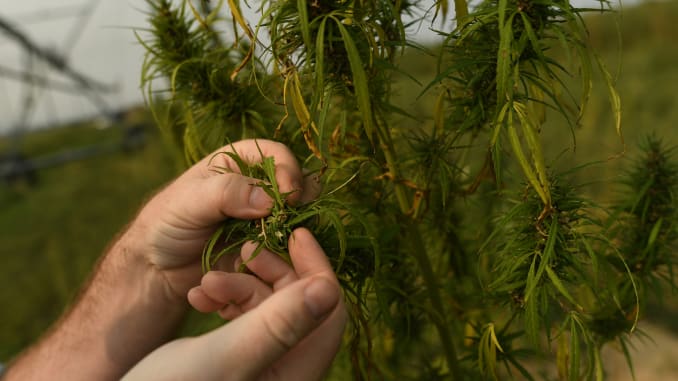The re-categorization of hemp from illegal drug to legal agricultural products has created a monumental opportunity for hemp farmers and companies nation-wide across the US. Unfortunately, with opportunity has come a number of unique challenges.
Hemp Seed Shortage Plaguing the Industry in 2019 and into 2020
A prominent and impending problem looming over the industry as a whole is a shortage of hemp seed. Growing hemp from seed brings with it a number of special challenges. Perhaps the most serious is that the amount of THC in the plant naturally varies based upon its genetic makeup—and a plant that produces too much THC ceases to be legally classified as “hemp”, and therefore runs amiss of Federal laws. Those that produce levels of THC under the legal limit but higher than necessary for particular products (such as those guaranteed to be 99%+ THC free), increase processing costs to remove THC during production.
Quality Seed and Genetics
Vertically integrated companies such as Next Green Wave have fared well despite the shortage, having greater control over their product from seed to field to store shelves. In-house biologists, horticulturists, and plant geneticists, as well as control over their own cultivation and farming processes, allow companies like Next Green Wave to flourish despite the lack of high-quality seeds available for purchase on the market.
However, those companies who do not own their own supply chains nor have made the investment into vertical integration, as well as individual farmers are struggling.
Farmers and CBD companies need either hybrid seed or seed from carefully-selected genetic lines to guarantee not only the high yield and excellent performance of any crop needs, but also legal compliance. Since the industry as a whole is so new, there are as of yet very few people producing such quality seed and making it available for purchase. An alternative is to buy young plants cloned from varieties known for a good (and legal) product, but clones are rare for the same reason good seed is.
Farmers are also looking for feminized seed, meaning seeds guaranteed to produce few, if any, male plants. Male plants offer a poor return on investment because they take up the same space in the field as females but don’t produce the cannabinoid-rich flowers farmers look for.
One Such Company Filling the Void is Next Green Wave
With a library of over 120 connoisseur cultivars, advanced tissue culture technology and expert horticulturists and plant biologists, Next to Green Wave, Inc. is filling a much-needed void in the industry, providing direct sale of seeds, seedlings and world-class clones to retail and wholesale clients alike.
Some Farmers are Sitting Out the Growing Season (or plan to)
The current seed-and-clone shortage is forcing many hemp farmers to either sit this growing season out or to buy seed from less-reputable suppliers, risking a field half-full of male plants or, worse, poorly-performing or even illegal plants.
Right now is a very good time to be a reputable hemp-seed supplier.
The challenge is not only to ramp up production of quality feminized seed and clones, but also to develop hybrids and cultivars with the genetics to consistently produce the high-CBD, very low-THC flowers modern hemp farmers want on plants that can perform well in the field.
Field Performance Varies with Location and Climate
Many hemp varieties were developed in hot, arid regions and do not do as well in other climates, such as the cool, wet conditions in either New England or the Pacific Northwest. The length of the growing season varies dramatically from place to place.
Many hemp seed suppliers are therefore working to develop varieties able to thrive in other conditions. Methods and business plans vary, with some suppliers breeding varieties for use in their own area only, and others looking to offer a range of cultivars to offer all across the country. In many cases, the new cultivars and hybrids are proprietary, meaning farmers must agree not to save seed from their crop—not a difficult ask, if they’re growing to produce CBD, for which the flowers must be harvested without being pollinated anyway. There is no seed to save.
Closing Thoughts
But plant breeding takes time, and developing a new variety may take several years of careful inbreeding to weed out unwanted genes and achieve consistency, plus cycles of out-crossing to bring in new genes, and the industry is very new. Whatever seeds are available now likely offer only a hint of what will be available in years to come.



















